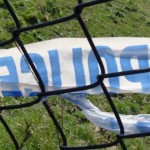Following last night’s decision by the Isle of Wight council’s Cabinet to award BT ‘preferred supplied’ status for the Rural Broadband project, Isle of Wight Internet Service Providers have their say.
John Irvine, Managing Director of Cowes-based WightFibre, has been a long-time campaigner for a level playing field in the bidding process.
Readers will remember an article we ran in February, where Mr Irvine stated that the £3m+ being spent by the council was a “waste of money”.
“Will not deliver the speeds it promises”
Today, John Irvine, CEO of WightFibre reiterates his belief that BT wil not be able to deliver on the speeds it promises. He says,
“WightFibre welcomes the additional scrutiny promised for this project by the Council. For too long the Council has swallowed BT’s propaganda on this subject without question.
“The reality is BT’s “theoretical model” used for the project will not deliver the speeds it promises to anything like the 97% of homes promised and it is right that the Council hold BT responsible for any short comings.”
Scrutinise the contracts
He goes on to encourage all councillors to look carefully at the contracts when they are ready for approval at the end of the year.
Saying,
“Any contract still needs to be approved. WightFibre hopes that all Councillors across the Island will take an interest in this subject to ensure the Cabinet recommendation is fully implemented and that promises of speeds to be delivered by BT are made contractually binding to the point where council subsidy will be returned when the required speeds are not delivered.”
Legal action not being ruled out
As stated before, Mr Irvine does not believe that the procurement process was carried out properly and following last night’s decision, says today that he’d not ruling out legal action against the council.
Mr Irvine said,
“Despite the apparent glowing report from the National Competency Centre that this procurement process has been very well run by the Council, WightFibre believes the proper process was not followed and does not rule out legal action to remedy this.”
Image: kainet under a CC BY-SA 2.0 license





